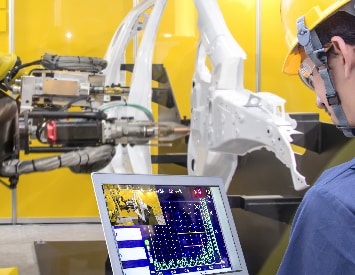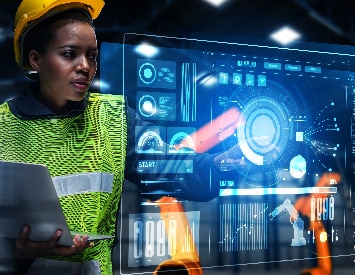The industrial facility or smart-factory of the future is, in fact, here today. Automated processes ensure efficiency, and round-the-clock monitoring promises ongoing operations. However, not a lot of consideration is given to the crucial sensors in an industrial set up that makes this possible. Industrial sensors are the smaller but omnipresent element within those industrial facilities and factories, monitoring the entire ecosystem of an industrial operation and making sure those processes continue without a hitch. As sensor networks are brought online and form part of the Internet of Things (IoT) future, keeping them online is imperative. Industrial sensors typically run off of lithium-ion batteries and inevitably need replacing. A new startup is innovating in the space and taking the battery out of the equation altogether.
Smart factories and other industrial operations face replacement costs since sensor batteries eventually deplete. Some sensor batteries can last for up to a year before they need to be replaced.
However, a startup named Everactive says they have the answer to eliminating battery requirements that modern-day IoT sensors have. They are launching a self-powering sensor without a battery that can last up to 20 years.
How does the sensor work?
The sensors have come a long way since their inception. The initial concepts were bouncing around inside the minds of the two future co-founders of Everactive who were attending the Massachusetts Institute of Technology. David Wentzloff and Benton Calhoun focused their academic careers on low-power technologies. The former on low-power digital circuits and memory, while the latter focused on low power radios. Their combined skills have given birth to their new sensor — the Eversensor.
“It’s all enabled by the ultra-low-power chips that support continuous monitoring. Because our source of power is unlimited, we’re not making trade-offs like keeping radios off or doing something else [limiting] to save battery life,” Everactive Co-Chief Technology Officer David Wentzloff said.

Everactive says the ultra-low-power integrated circuits harvest energy from indoor light and vibrations. There is also an outdoor self-powered sensor available that can utilize small collar cells to power the sensors. The Eversensors can be fixed to key infrastructure in industrial operations and can sense when those machines stop functioning. The sensors do this by measuring temperature, acceleration, vibration, pressure, and more.
Everactive says the sensor meets all of the sensing, processing, and wireless capabilities that any battery-powered sensor does. Process optimization and reduced maintenance cost of both the sensors and industrial machinery are just some of the benefits of sensors working around the clock.
“Removing the need for batteries solves one of the key limitations of the IoT and represents a fundamental paradigm shift, allowing our customers to deploy wireless sensors at scale and gain access to new, high-value data-driven insights,” Bob Nunn, the CEO of Everactive, said.
The company is boasting the world’s lowest power radios and are deploying them for some of the biggest industrial companies in the world. With batteryless technologies generating much interest in the world of industrial engineering, more battery-intensive technologies could see new opportunities in a plethora of industries.
Works Cited
“Industrial IoT – Batteryless Sensors Data Analytics.” Everactive, 31 July 2020, everactive.com/.
Zach Winn | MIT News Office. “The Factory of the Future, Batteries Not Included.” MIT News, 20 Aug. 2020, news.mit.edu/2020/everactive-sensors-0820.


